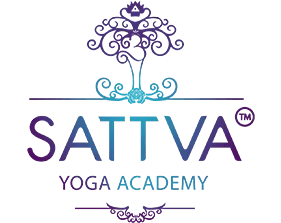Essential Modules in Ayurveda Training (Updated 2023)
06 September, 2023
A journey of Ayurveda training is akin to opening a door to the profound wisdom of holistic wellness and natural healing. As we delve into the intricacies of this ancient science, we discover a world where the elements, the doshas, and the essence of life itself converge to create a harmonious existence. This article explores the essential modules of Ayurveda Training , designed to provide individuals with a comprehensive understanding of Ayurvedic principles and practices. From the foundations of Ayurveda to practical applications and hands-on experiences, these modules serve as the gateway to a transformative voyage toward holistic well-being.
Module 1: Foundations of the Gateway to Wellness
- History of Ayurveda: Exploring the origins and evolution of Ayurveda as a holistic healing system.
- 3 Pillars of Ayurveda: Understanding the fundamental principles of Ahara (Food), Nidra (Sleep), and Brahmacharya (Evolution) in Ayurvedic practice.
- Understanding the Elements: Delving into the Panchamahabhutas (five elements) that form the basis of Ayurvedic philosophy.
- Introduction to the Attributes: Learning about the Gunas, which are qualities that influence our well-being.
- Connecting to the Doshas: Exploring Prakriti (constitution) and Vikruti (imbalances) in relation to the three doshas: Vata, Pitta, and Kapha.
- The Constituents of Nature: Discovering Sattva, Rajas, and Tamas, the three fundamental qualities that shape our consciousness.
- The 3 Vital Essences: Exploring Prana (life force energy), Tejas (inner radiance), and Ojas (vital essence) and their significance in health.
- Cycles of Life, Seasons, & Day: Understanding how daily and seasonal rhythms affect our well-being.
- Dinacharya, Ritucharya, Sadvritta: Introduction to daily rituals, seasonal routines, and ethical living according to Ayurveda.
- Taste: Identifying the six tastes (bitter, astringent, sweet, salty, sour, pungent) and their role in healing.
- Understanding Examination: Exploring the various methods of daily diagnosis in Ayurveda.
- The Responsibilities and Opportunities: Learning about the role of a Sattva Ayurveda Lifestyle Consultant in guiding others towards wellness.
- The History of Ayurveda: Understanding the historical context and significance of Ayurveda's establishment.
- Foundations of Ayurveda: In-depth study of elements, attributes, doshas, and gunas.
- Mind-Body Connection: Exploring Sattva, Rajas, and Tamas in relation to mental and physical health.
- Importance of Prana, Tejas, and Ojas: Deepening the understanding of these vital life forces.
- Intricacies of Taste and Diagnosis: Delving into the details of taste and diagnostic methods.
- Daily Lectures: Approximately 3-5 hours of daily lectures.
- Guided Journeys: Six journeys comprising pranayama sets, kriya sets, intentions for balance, and daily/seasonal focus.
- Comprehensive Practice: Each journey includes pranayama kriya, mantra kriya, asana practices, and meditation rooted in the Sattva Yoga Tradition.
Ayurveda Training Module 2
- Review of Module 1 Concepts: A recap of fundamental concepts from Module 1.
- The Breakdown of the Six Tastes: Detailed exploration of the six tastes and their significance in overall wellness.
- Nutrition (Rasayana/Vajrayana): Understanding the role of nutrition in Ayurveda, with a focus on rejuvenation and purification.
- Subdoshas: Examining how subdoshas affect our balance and strategies for finding equilibrium.
- Six Stages of Disease: Understanding the progression of disease in Ayurveda.
- Purvakarma/Panchakarma: Exploring preparatory and detoxification therapies.
- Ayurveda Herbology (Dravyaguna 1 & 2): Learning about Ayurvedic herbs and their applications.
- Ayurveda and Marma Therapy: Introduction to Marma points and their role in therapy.
- Expanding Responsibilities: Further opportunities and responsibilities of a Sattva Ayurveda Lifestyle Consultant.
- Practical Experience: Hands-on partner work with snehana (oils) and marma therapy.
- Seasonal Awareness: Developing awareness of seasonal changes and offerings.
- Sattva Organic Farm Visit: Exploring the practical aspects of Ayurvedic living.
- Art of Assessment and Consultation: Preparation for understanding and conducting assessments and consultations.
- Lectures and Practice: Approximately 3-5 hours of daily lectures and guided journeys.
- Holistic Practice: Each journey includes pranayama kriya, mantra kriya, asana practices, and meditation in alignment with the Sattva Yoga Tradition.
Ayurveda Training Module 3: Practicum
- Completion of Modules 1 & 2: Prior completion of Sattva Ayurveda Modules 1 & 2 is required.
- Practicum Experience: This live or virtual practicum includes a review of written assessments and practical applications of Ayurvedic principles.
These comprehensive modules in Sattva Ayurveda Training provide a thorough understanding of Ayurveda's principles, practices, and practical applications, empowering individuals to become proficient Ayurvedic practitioners.

